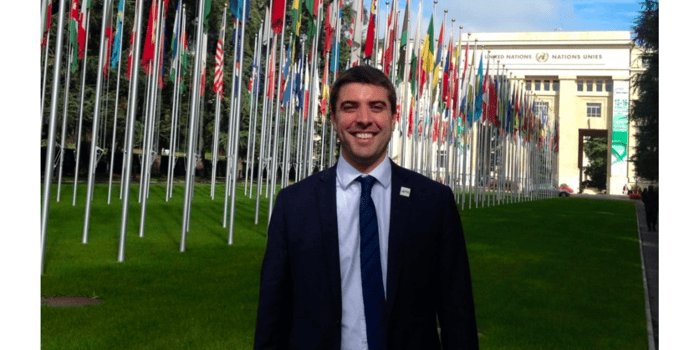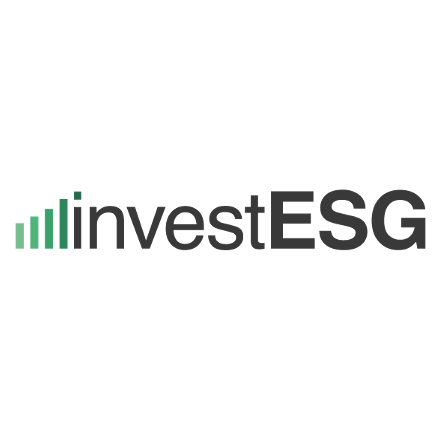Q&A with Will Martindale, Co-founder and Managing Director at Canbury and former Director of Policy and Research at UN PRI


Your book, ‘Responsible Investment: An Insider’s Account of What’s Working, What’s Not and Where Next,‘ was officially published this morning. Considering the current mainstream ESG approaches and implementation, do you believe responsible investing is truly walking the talk? In my book, I say: “I have worked in responsible investment for over a decade, I have seen and been part of its growth. I’ve also seen its limitations.”
“My reflection is that responsible investment is profoundly important, but if you define responsible investment to include real-world sustainability impact, it remains unproven.”
“In other words, with few exceptions, responsible investment is not contributing to real-world sustainability impact at anything like the scale necessary to make a difference.”
My book attempts to a modern definition of responsible investment, one that includes real-world impact. For me, there are five characteristics that investors should consider.
Goal: The real-world goal of the investment strategy.Intention: How the investment strategy will achieve the goal.Process: The processes involved in the investment strategy.Measurement and reporting.And finally, financial performance.
“With few exceptions, responsible investment is not contributing to real-world sustainability impact at anything like the scale necessary to make a difference.”
In the penultimate chapter, my book argues in favour of systems change. I say:
“Many responsible investment professionals see responsible investment’s future in impact investments, new metrics, new disclosures and new sustainability themes, as well as understanding responsible investment’s limitations, and being clear on responsible investment’s objectives. I would subscribe to this too. These are all important developments.”
“But for me, I’d also like to see further focus within the responsible investment industry on how we think about systems change.”
What should asset owners and managers prioritise to ensure that responsible investments are efficient, future-proof, and avoid the pitfalls of greenwashing?
To future-proof investments, I would encourage investors to think more about “influence”.
In my book, I say: “For me, it comes back to how we think about ‘influence’. Investors themselves are not directly responsible for impact. Rather, they influence others to have impact. But the literature is surprisingly thin on what constitutes effective influence.”
I put forward a series of thought-exercises, including WTW Thinking Ahead Institute’s 4321 pin code and Cardano’s model of influence, which tiers activities by their influence.
I say: “Investors may disagree with the tiering, but thinking through the range of activities, whether the activity is direct or indirect, the degree of influence, and how different activities can be combined to maximise influence is, I think, worthwhile, and transversal. The framework also helps us to think about escalation.”
I also encourage our industry to better understand its limitations. I say: “There may be issues that require policy change where investors are not well-placed (or uniquely unable) to pursue that change. If so, this is an issue where responsible investment should sit out, however egregious.”
In contrast to divestments, stewardship is often considered the most impactful way to foster responsible investments and decarbonise portfolios. Could you elaborate on the pitfalls you have identified in your book regarding this approach?
In 2019, PRI described stewardship as failing, “yet remains our best hope”. It’s a view I agree with.
In my book, I address issues of stewardship resourcing and incentives. I say: “Not all engagements are equal. Some investors employ experienced, senior stewardship professionals, with clear stewardship objectives, escalation strategies, interim milestones, and reporting to clients and stakeholders, where the stewardship objective is an outcome – a change undertaken by the company. Some do not.”
I set out my thinking on collaboration, split-voting, sovereign engagement, escalation, deny debt strategies, systems thinking and policy engagement.
On voting, I say that I favour:
“Pre-vote disclosure (or principle-based pre-vote disclosure, but preferably priority votes, upfront) in which asset owner clients are consulted.”“Published escalation measures (escalation measures may include votes against management on a particular issue, votes against a director or directors, or filing a resolution).”“Post-vote outcome-based disclosures (the real-world change achieved by the vote).”
UN PRI, of which you have been a leading team member for several years, has long emphasized that incorporating ESG factors into investment decision-making is part of fiduciary duty. How, in your opinion, do these two aspects correlate and impact each other? On PRI itself, I say, “the PRI is central both to my background and the global growth of responsible investment.”
“After almost two decades, PRI has established considerable goodwill and cross-industry capital.”
“My view is and always has been that for those working in responsible investment, PRI is something that belongs to all of us and that we should all support to succeed.”
On fiduciary duties, I say that “As with every study hitherto and hence, the answer was ‘as long as it is relevant to financial returns’.”
I subscribe to arguments put forward by UK law firm Freshfields, in their report, A Legal Framework for Impact, commissioned by PRI, UNEP FI and The Generation Foundation. I say:
“The report ‘A Legal Framework for Impact’ proposes an elegant distinction in investment for sustainability impact between what Freshfields calls ‘instrumental’ and ‘ultimate ends’
“Instrumental investing for sustainability impact is where achieving the relevant sustainability impact goal is ‘instrumental’ in realising the investor’s financial return goals. Although the investor seeks real-world impact, the motivation to do so is financial.”
The report finds that, in all jurisdictions, instrumental investing for sustainability impact is consistent with investor fiduciary duties.
What other key messages and insights can readers expect from your book?
My intention is to put forward a short, accessible and personal interpretation of what responsible investment is, what’s working, what’s not and where next.
The book is also about how new ideas can emerge, can gain traction and evolve to maturity, as well as the challenges and the barriers along the way.
Responsible investment is also ‘growing up’. And part of growing up is acknowledging limits, complexities and making difficult decisions.
Responsible investment has got this far often by trying to stick to the script, safety in numbers, and not talking about the awkward bits in public.
But this is no longer an option, and so it’s not surprising, that it draws its critics.
Responsible investment needs to be clear about its capabilities, objectives and limitations. A challenge responsible investment professionals are rising to.
brief bio
Will Martindale:
Co-founder and Managing Director at CanburyFormer Head of sustainability at CardanoAuthor, “responsible investment, an insider’s account” and “fiduciary duty in the 21st century”Director of Policy and Research at UN PRICredit derivatives trading at JPMorgan1st class maths from King’s College
Have you already read?
All opinions expressed are those of the author and/or quoted sources. investESG.eu is an independent and neutral platform dedicated to generating debate around ESG investing topics.
Published by
 investESG
investESG
 investESG
investESG

